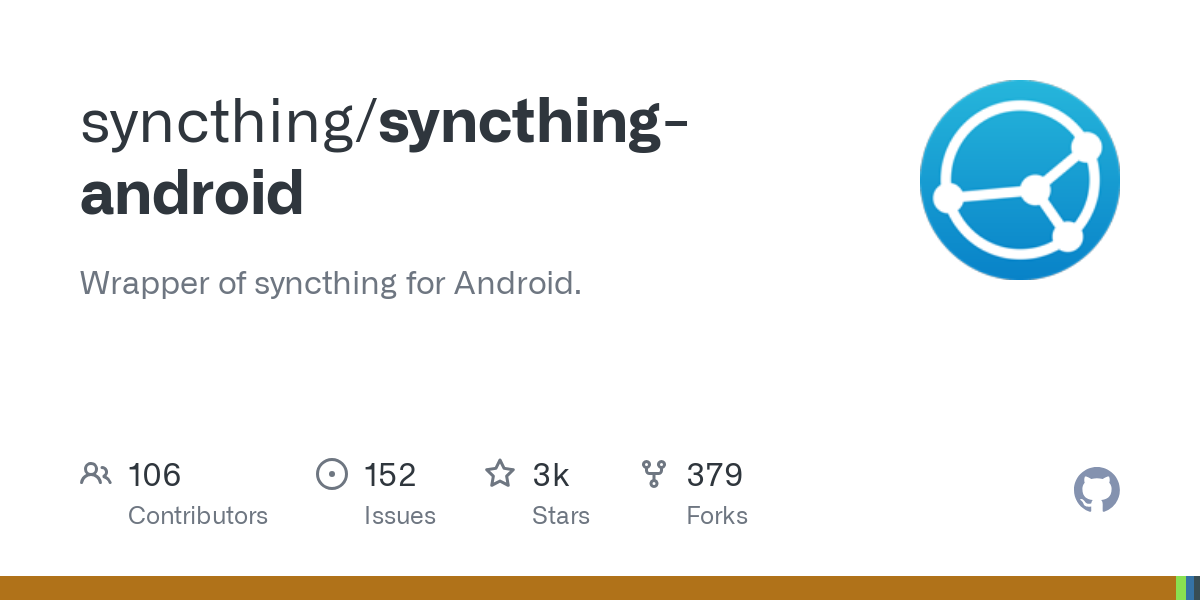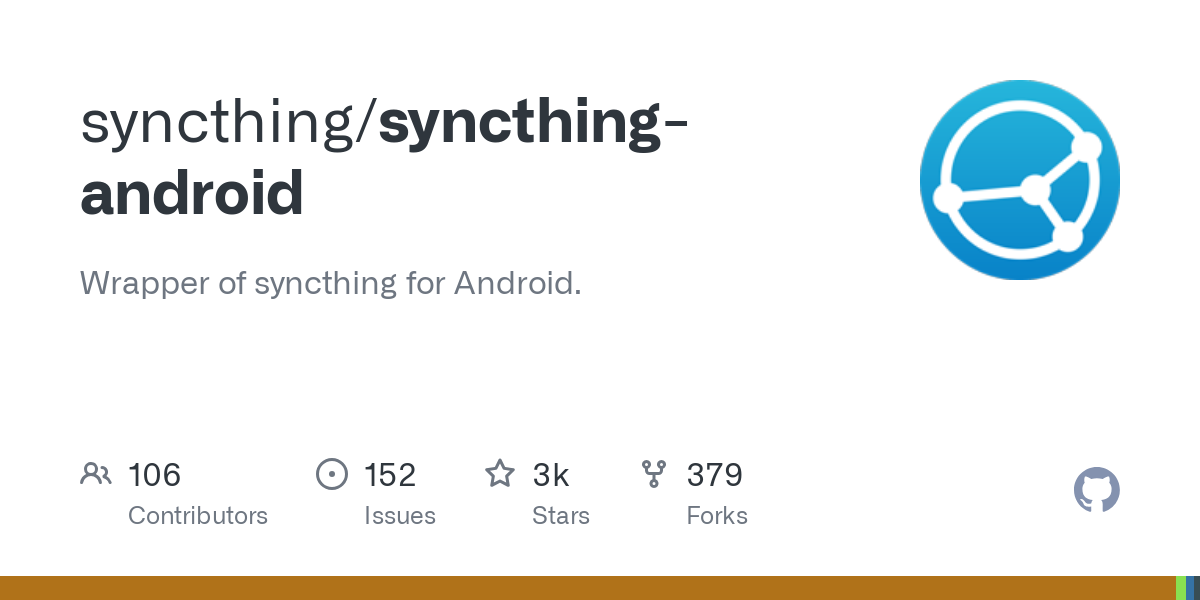The foundation is the largest shareholder, but Proton has not specified whether it controls a majority.
- 4 Posts
- 66 Comments
A GitHub issue was opened for Syncthing-Fork, so it will be worth watching that to know whether it will continue to be supported.

 78·20 days ago
78·20 days agoBitwarden. It is open source, reliable, easy to use, and compatible with everything. The free version has nearly everything, but I have the paid version to support development because $10 per year is very reasonable.
I do regularly export my password vault to KeePassXC as my backup though.
Thank you. I am not sure how that only ended up on that link.
Syncthing: https://f-droid.org/en/packages/com.github.catfriend1.syncthingandroid/
KDE Connect: https://f-droid.org/en/packages/org.kde.kdeconnect_tp/
AntennaPod: https://f-droid.org/en/packages/de.danoeh.antennapod/
DAVx⁵: https://f-droid.org/en/packages/at.bitfire.davdroid/
Obtanium: https://f-droid.org/en/packages/dev.imranr.obtainium.fdroid/
Voyager for Lemmy: https://f-droid.org/en/packages/app.vger.voyager/
Edit: Fixed link
And laid off all but one person. Source: https://arstechnica.com/gadgets/2024/08/nova-launcher-savior-of-cruft-filled-android-phones-is-on-life-support/
This does not apply to the server. Only the client app is open source. The server is proprietary.

 2·2 months ago
2·2 months agoDespite not being easy to find, most news sites still have RSS feeds. They are great for just getting the news from sources I trust instead of big tech algorithm recommend blogspam. It is also possible to get RSS feeds from subreddits and Mastodon.
It is fun to play with, but it is not suitable to use as a primary phone. It has poor battery life and is very slow.
openSUSE also remains one of the only distributions that have automatic Btrfs snapshots setup out of the box. I am very surprised other distributions have not done the same. Especially Fedora, since they use Btrfs already.

 8·5 months ago
8·5 months agoProton will still be a for-profit company that will be majority-controlled by a non-profit. The non-profit will not own all of the business either, so there will still be profits going to shareholders.

 13·5 months ago
13·5 months agoWhich is the same structure that Proton is moving to.

 3·5 months ago
3·5 months agoGoogle does not let you unlock the boot loader if the device is carrier locked. It needs to get paid off and unlocked before the boot loader can be unlocked to install custom roms.
If checking their email a couple of times per year is too high a requirement, I would not recommend the time and effort necessary to maintain a mail server. Even people who enjoy self-hosting often do not want to host a mail server.

 2·6 months ago
2·6 months agoSignal still requires a phone number to use it. What they recently added is the ability to message people without needing to know their phone number.

 4·6 months ago
4·6 months agoI use Radicale for my calendars, reminders, and contacts precisely because of how minimal it is. It has been very reliable for me and is very easy to back up and restore since it is just files.
Create a different alias for everything using a service like:
- SimpleLogin
- Addy (AnonAddy)
- Firefox Relay
- Apple Hide My Email
- free stuff
- subscription
Pick one
This is disappointing as someone who does not want everything centralized under one company. I have tried to diversify the services I use, but this is the second one that Proton has acquired.
SimpleLogin development has essentially been stalled since they were acquired by Proton as resources were used to develop Pass instead. I have a feeling that Standard Notes will be treated similarly.







Proton is still a for-profit company. However, there is now the non-profit Proton Foundation that is the largest shareholder of the Proton company (not necessarily majority shareholder).
Plus, non-profits are not guaranteed to be positive. See OpenAI for example.
Edit: Grammar